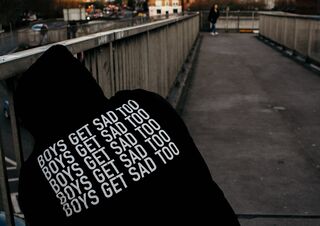Health
If Self-Care Isn't Fixing Your Mental Health, It's Not You
Self-care, and even therapy, aren't complete solutions to mental illness.
Posted May 19, 2022 Reviewed by Lybi Ma

It's currently mental health awareness month. Every year during this time (and in fact all year), the dominant reminders and solutions seem to focus on:
- Do self-care,
- Try therapy, and
- Reach out to loved ones who might be struggling
If these solutions aren't fixing your mental health, then you might feel like you're doing something wrong. Or, you might feel angry because they seem inadequate (and you're right)
Self-care alone, and even therapy, aren't complete solutions to mental health and illness. Why do we hear about them over and over again?
- Therapy, and self-care advice that stems from therapy principles, are what clinical psychologists are trained in. And, clinical psychologists are the main people called on to give mental health advice.
- They're easier and more within people's control than other solutions.
- They're inoffensive. They don't seem overtly political; they don't upset anyone.
- They allow copping out. They allow lip service without addressing anything equally fundamental but more challenging. For example, corporate wellness programs are often all about self-care when they shouldn't be. And, diversity initiatives usually aren't inclusive of everyone.
What else do we need?
1. Less fake diversity and inclusion in our workplaces.
There will always be some individuals with mental illnesses who can bootstrap their way to career success, just like there are some black, brown, and or disadvantaged people who succeed despite racism and inequality. Some folks with challenges still manage to succeed within our hustle culture or find ways to sidestep it (by self-employment). Lots of people don't.
Real diversity and inclusion require real accommodations, understanding, and change. For example, people who struggle with mental health may not have perfect workplace attendance. They may need to be interviewed, trained, and managed differently. For some very specific examples, see this TED talk from psychologist Dr. Gil Winch on inclusive job interviewing.
Feeling a sense of accomplishment and respect are essential components of a healthy mood. And work is one of the main ways to experience these. We need to make these experiences accessible to everyone, not just those who can survive the traditional rat race.
2. Better therapies
Current psychological therapies are the best we've got. But, they don't help everyone, and even when they help a person function, they don't always help people truly flourish to the extent we'd all like. For their part, psychologists need to be less attached to their existing ways of thinking and preferred methods, and more curious and open about novel methods. Part of psychology training is learning to tolerate feeling awkward and uncertain without avoiding it. Psychologists teach these skills to clients all the time, yet are still sometimes reluctant to talk about elephants in the room when it comes to the limitations and imperfections of therapy. As a field, those of us trained in psychology need to keep making therapies better, and question our assumptions. This includes everyone in the field, not just researchers.
*Note that I don't mean to dissuade anyone from trying therapy. I highly recommend it, despite its limitations. Here, I'm merely acknowledging that it's not a perfect or complete solution.
3. Life can't be as crushingly hard
It's a no-brainer to say excessive stress contributes negatively to mental health for many people. Yet, in our hustle-obsessed work culture, people who want to succeed and excel are often expected to work too much. And we have many folks saddled with huge student loans, medical, and child care costs.
We won't find solutions if the only people involved in finding them are those with very fixed pre-existing political ideologies and if we're so tribal about those. Creative solutions are going to take a lot of upskilling at things like how to dissent and defy, and how to not fall into thinking traps like motivated cognition and the just-world fallacy.
Our solutions need to accommodate differences. For example, I wanted to be a stay-at-home mother, not have my child in daycare, whereas I have parent friends who want daily time away from their children when they're at work and find that essential to maintaining their mental health.
4. To talk about mental illness, not just mental health
Mental health has become a palatable, not-so-scary term. People are still terrified to talk about mental illness, especially in the workplace-corporate context. No, they're not merely two sides of the same coin. No, you shouldn't always use the term mental health rather than mental illness because it sounds more positive.
The way mental illness (not health) is talked about in the media is often the trope of labeling white, male murderers as mentally ill, whenever a mass shooting happens. No mental illness doesn't cause this. Imagine how it feels to those with a mental illness to have it represented this way, over and over.
These four points aren't an exhaustive list but highlight that no one should expect that self-care, therapy, and supportive helpers can overcome every mental health challenge. If self-care is too hard and isn't solving all your problems, it's not you, it's us, as in all of us.
HT to my friend, author Stephanie Schroeder whose Facebook post inspired this post.




